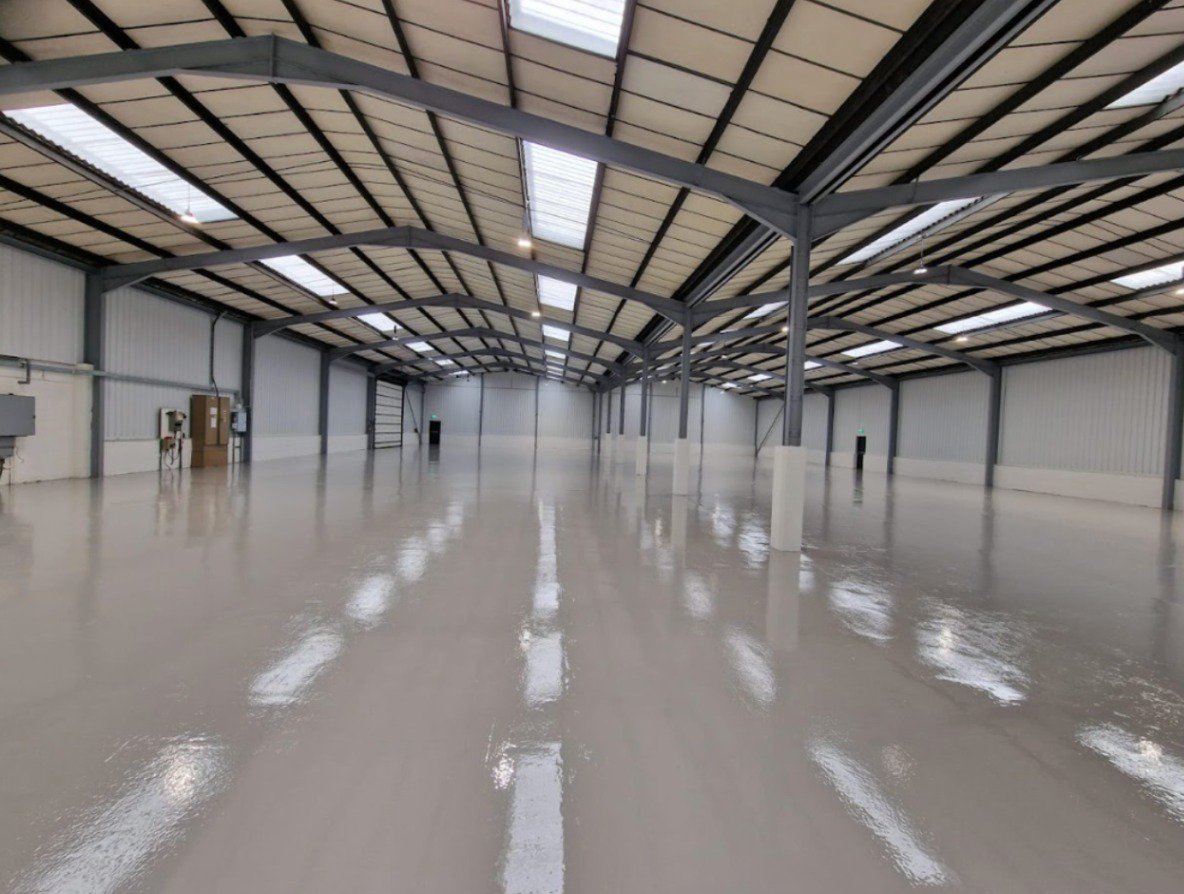Epoxy flooring is the ideal solution for busy modern warehouses, retail storerooms, and distribution centres. In this article, we will explain how epoxy resin flooring systems outperform traditional concrete floors in several key areas, saving businesses money and improving safety.

1. Volatile Organic Compounds (VOCs)
Concrete floors can omit volatile organic compounds, or VOCs for weeks or months following installation. Many of the modern concrete formulations used in warehouses include plasticisers that emit VOCs for extended periods, impacting indoor air quality, causing odours, and potentially leading to respiratory irritation and health problems for warehouse operatives. Some commercial resins are also a source of VOCs but, unlike concrete, the curing time is far quicker. A resin floor normally fully cures within two to seven days, after which no VOCs are omitted, contributing to a healthier and more environmentally friendly warehouse.
2. Durability and resistance
Concrete floors, while tough, are vulnerable to damage from sudden impacts and the cumulative effects of wear and tear. This is why potholes and cracks are such an issue in warehouse floors, posing a safety risk to pedestrians and vehicle users. Resin flooring is better suited to warehouses in this regard because its seamless, durable surface is designed to withstand the impact of heavy traffic from machinery and pallet trucks, increasing longevity in high-demand environments.
3. Maintenance And Servicing
Maintaining a concrete warehouse floor is an ongoing, never-ending job. Floors require regular repairs, resurfacing, repainting, and cleaning, which amounts to a significant investment in resources, time, and money over the life cycle of the floor. Warehouse resin flooring systems, in comparison, require very little maintenance. Typically, only regular sweeping and the occasional power wash is needed to keep your warehouse floor clean and functional and, being less vulnerable to localised damage, they do not require as many spot repairs as concrete floors.
Epoxy flooring is also resistant to various chemicals and liquids, making it better able to handle spills, engine grease and other products than concrete without incurring damage. The other main difference between concrete and resin flooring is the surface itself. When you get up close and personal to a concrete floor, you’ll notice an intricate web of valleys, cracks, and pits, which provide havens for bacteria, dirt, chemicals, and contaminants to gather. A resin floor, on the contrary, is completely seamless, providing a surface that is not only easier to clean but intrinsically more hygienic.
Find Out More
Advanced Resin is one of the UK’s leading contractors for commercial and industrial resin flooring. To discover the benefits of resin flooring for your warehouse, please contact one of our specialists today by clicking here.



